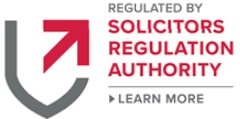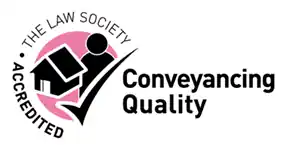Cost Information
Home > Costs Information
Costs Information
Solicitor and Head of Personal injury, Anna Rushton has overall supervision of Personal Injury cases.
Solicitor and Head of Medical Negligence, Dominic Jones has overall supervision of Medical Negligence and Professional Negligence cases.
Solicitor and Head of Private Client, Shabana Khairi has overall supervision of Wills & Probate matters.
Conditional Fee Agreement (No win, No Fee).
Conditional Fee Agreements are used for the majority of our personal injury, medical negligence and professional negligence cases.
If the case is won we seek recovery of our ‘Basic Charges’ and disbursements from the Opponent/Defendant to the case (excluding success fee and any insurance premium).
Disbursements are the fees charged by other parties to provide services/expert opinions required in the case, for example medical reports and court fees.
If the case is won a success fee is deducted from the compensation recovered and paid to the Solicitor. The Success Fee, inclusive of VAT*, is a maximum of 25% of the compensation recovered for injury and losses incurred. No Success Fee will be applied to compensation for future losses or benefits recovered on behalf of the State.
If the case is lost responsibility for disbursements and for any opponent’s legal costs and disbursements can be covered by a legal expenses insurance product (taken out before or after the accident).
If you do not already have legal expenses insurance then you can take out After the Event (ATE) Legal Expenses Insurance to protect you against your opponent’s legal costs and disbursements.
Circumstances when the Claimant becomes responsible for the Defendant’s costs:
As of 1st April 2013, legislation means that the risk of the Claimant being required to pay the Defendant’s costs is reduced due to the introduction of “Qualified One Way Costs Shifting”.
“One Way Costs Shifting”, means that the Claimant can recover their legal costs from the Defendant if the claim succeeds, however the Defendant cannot recover their costs from the Claimant if the claim fails.
However, “One Way Costs Shifting” can be overturned and would not apply in the following situations:
Where the claim is found to be fundamentally dishonest:
If a case proceeded to Court and the Claimant was found by the Court to be fundamentally dishonest then the Defendant would be able to seek payment of their costs from the Claimant.The claim does not need to be fundamentally dishonest in its entirety, it can relate to any part of the claim and therefore if a Claimant is found to have exaggerated symptoms or a section of the claim they can be ordered to pay the Defendant’s costs and would be responsible for their own Solicitor’s costs. Such conduct would also invalidate any legal expenses insurance policy.
If the Claimant fails to beat a “Part 36 offer”:
If the Defendant makes an offer to settle a claim, which the Claimant rejects and then the Claimant later receives compensation (by way of agreement or Court order) for a figure which is less than the Defendant’s previous offer, then the Defendant will be able to seek payment of costs from the Claimant.
If the Defendant makes this type of offer in a case, we will advise you fully regarding the value of the claim and the risk of rejecting the offer and later failing to beat the offer. We are very experienced in valuing personal injury claims for our clients.
Where the claim is struck out by the Court:
Where it is found by the Court that there were no reasonable grounds for bringing proceedings, there has been an abuse of process by the Claimant or the conduct of the Claimant has obstructed the just disposal of the case, the Judge would strike out the claim and order that the Claimant must pay the Defendant’s costs.
Where the Judge finds against the Claimant following a pre issue or interim application:
It is possible to apply to the Judge for various orders during the course of the claim. This can be done before proceedings are issued or post commencement of proceedings. Sometimes this step is taken to force the Defendant to cooperate by disclosing information and documentation. Or we may receive a Defence which we believe has no merit and we want to ask the Court to strike it out. There are other tactical reasons for making an Application to the Court before the final hearing date, to enable us to effectively progress and hopefully win a disputed claim. Sometimes, litigation reaches a stalemate situation and we are virtually forced to issue an application. If we make an application to the Court and the Judge unfortunately decides in the Defendant’s favour, the Defendant may be able to seek payment of their costs against the Claimant.
*Where VAT applies it will apply at the rate in force from time to time, which is currently 20%
Private Client Price Guide
| Wills | Prices start from |
|---|---|
| Single basic will | £250 + VAT |
| Single basic will amendment/ codicil | £200 + VAT |
| Single will with life interest trust | £400 + VAT |
| Single will with discretionary/other type trusts | £450 +VAT |
| Couple basic will | £400 + VAT |
| Couple basic will amendment/ codicil | £450 + VAT |
| Couple mirror wills with life interest trust | £500 + VAT |
| Couple wills with discretionary/other type trusts | £500 + VAT |
Lasting Powers of Attorney (LPAs)
| Single person one LPA either Property & Financial Affairs or Health & Welfare | £400 + VAT |
| Single person both types of LPAs -Property & Financial Affairs and Health & Welfare | £600+VAT |
| Couple Two LPAs either Property & Financial Affairs or Health & Welfare | £600 + VAT |
| Couple LPAs both types of LPAs Property & Financial Affairs and Health & Welfare | £1,000 + VAT |
Registration Fee payable to Court for each LPA document £92 no VAT unless exemption or remission applies
Package Deals
| Package Deal for single person – basic Will and both types of LPAs | £700 + VAT |
| Package Deal for couple – basic Wills and both types of LPAs for each person | £1,300 + VAT |
| Land Registry Office Copy entries | £7 + VAT |
| Certified copies of LPA (per copy) | £30 + VAT |
| File storage fees for LPA’s only | £35 + VAT |
| Severance of joint tenancy | £100 + VAT |
Additional Payments
| Identity Check for Each Person | £25 + VAT |
| File Closure and Storage Fees | £10 + VAT |
**Please note the price set out above are for guidance only and can change over time. The cost of Wills can vary depending on your personal circumstances and needs. Numerous factors can affect the costs, but not limited to, + LPA the following: gifts of property/land, gifts of company shares/other business interests, Multiple pecuniary/specific legacies, Multiple beneficiaries /calamity clauses, gifts to trusts,check of property title, review of Articles of Association/divorce consent order, review of other relevant documentation, Appointment of Guardians.
Estate Administration Service
| Level 1 Estates (estates under £325,000) | £1,000 – £4,500 + VAT |
| Level 2 Estates (estates between £235,000 – £650,000) | £4,500 – £9,000 + VAT |
| Level 3 Estates (estates between £650,000 – £1,000,000) | £6,000 – £12,000 + VAT |
| Level 4 Estates (estates over £1,000,000) | £6,000 – £15,000 + VAT |
Fixed Grant-Only Service for Preparing and Submitting Grants
| Preparation and Submission of Grant | £1,250 + VAT |
| *Only available for non-taxable estates |
Additional Disbursements
| Probate Court Fee | £300 + £1.50 charge for each copy of the grant |
| Obtaining Copy of a Land Registry Title to a Property | £7 + VAT |
| Fee for Lodging Trustee Act Notices | £150-£200 + VAT |
| Bankruptcy Searches | £6 + VAT |
Additional Payments
| Identity Check for Each Person | £25 + VAT |
| File Closure and Storage Fees | £10 + VAT |
** Please note the price set out above are for guidance only and can change over time. The cost of our estate administration services can vary depending on your personal circumstances and needs. Numerous factors can affect the costs, but not limited to: Multiple executors and beneficiaries for us to correspond with; Multiple bank accounts or shareholdings to be dealt with Multiple Trustees to be dealt with; The estate includes a property and there are bills, insurances and maintenance to deal with; The estate includes agricultural or business assets; There are issues with the Will or disagreements between the beneficiaries; There are foreign aspects to the estate.










